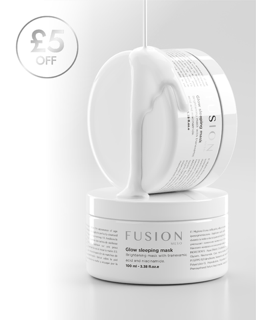Debunking the Top 5 Anti-Aging Myths: What Really Works?
- marielarkin15
- Aug 22, 2024
- 3 min read
Separating Myths from Facts in the Skincare Industry
The skincare industry is flooded with information, advice, and products promising to turn back the clock and give you youthful, glowing skin. However, not everything you hear or read is accurate. In fact, many popular beliefs about anti-aging are based on myths rather than scientific evidence. With so much misinformation out there, it’s easy to fall into the trap of ineffective or even harmful practices. That’s why it’s crucial to separate fact from fiction when it comes to your skincare routine. In this blog, we’re debunking the top 5 anti-aging myths and revealing what really works.
Myth #1: "You Only Need Sunscreen on Sunny Days"
One of the most dangerous misconceptions in skincare is the idea that sunscreen is only necessary on sunny days. The truth is, ultraviolet (UV) rays from the sun can penetrate clouds and even glass, meaning your skin is exposed to these harmful rays year-round, regardless of the weather.
Why Daily SPF Use is Crucial: UV rays are the leading cause of premature aging, contributing to wrinkles, fine lines, and hyperpigmentation. Even on cloudy or rainy days, up to 80% of UV rays can reach your skin. To protect your skin from the cumulative damage these rays cause, it’s essential to wear a broad-spectrum sunscreen with at least SPF 30 every day. This simple step can make a significant difference in maintaining youthful skin over time.
Myth #2: "Expensive Products Are Always Better"
Another common myth is that the effectiveness of skincare products is directly proportional to their price. While it’s true that some high-end products contain premium ingredients, this doesn’t mean they’re automatically more effective than their affordable counterparts.
Debunking the Price-Equals-Effectiveness Myth: Many affordable skincare products contain ingredients that are just as effective, if not more so, than their expensive rivals. For example, ingredients like hyaluronic acid, niacinamide, and retinol are available in both highstreet and luxury products, often delivering the same results. When choosing skincare products, focus on the ingredient list, percentage of active ingredients and what’s suitable for your skin type rather than the price tag.
Myth #3: "Natural Products Are Always Safer"
The trend towards natural and organic skincare has led many to believe that natural products are inherently safer and more effective than those formulated in labs. However, this isn’t always the case.
Clarifying the Natural vs. Synthetic Debate: Natural ingredients can be beneficial, but they can also be potent irritants. Essential oils, for example, can cause allergic reactions or skin sensitivity. On the other hand, scientifically formulated skincare products often undergo rigorous testing to ensure they are safe, stable, and effective. While it’s great to include natural products in your routine, don’t discount the benefits of well-researched synthetic ingredients, which are often designed to address specific skin concerns with precision.
Myth #4: "Oily Skin Doesn’t Need Moisturiser"
It’s a common belief that if you have oily skin, you should skip moisturiser to avoid making your skin even greasier. However, this is a misconception that can lead to more harm than good.
The Importance of Hydration for All Skin Types: All skin types, including oily skin, need hydration. In fact, skipping moisturiser can actually trigger your skin to produce more oil to compensate for the lack of moisture, leading to increased greasiness and potential breakouts. The key is to choose a lightweight, non-comedogenic (won’t clog pores) moisturiser that hydrates without adding excess oil. Ingredients like hyaluronic acid are excellent for providing hydration without heaviness, making them ideal for oily skin types.
Myth #5: "Anti-Aging Products Should Be Used Only After Wrinkles Appear"
Many people believe that anti-aging products are only necessary once visible signs of aging, like wrinkles, have already set in. This reactive approach, however, overlooks the importance of prevention.
Advocating for Early Prevention: The most effective way to combat aging is to start using anti-aging products early, ideally in your 20s or 30s. Ingredients like retinoids, antioxidants (such as Vitamin C), and peptides help maintain skin’s elasticity, stimulate collagen production, and protect against environmental damage. By incorporating these ingredients into your routine before wrinkles appear, you can delay the onset of aging signs and keep your skin looking youthful for longer.
Making Informed, Evidence-Based Skincare Choices
In the quest for youthful skin, it’s easy to be swayed by popular myths and trends. However, achieving and maintaining healthy, youthful skin requires an informed approach. By debunking these common anti-aging myths, we hope to empower you to make evidence-based skincare choices that truly work. Remember, consistency, prevention, and using the right ingredients for your skin type are the keys to a successful anti-aging routine. Stay informed, trust science, and your skin will thank you in the years to come.




Comments